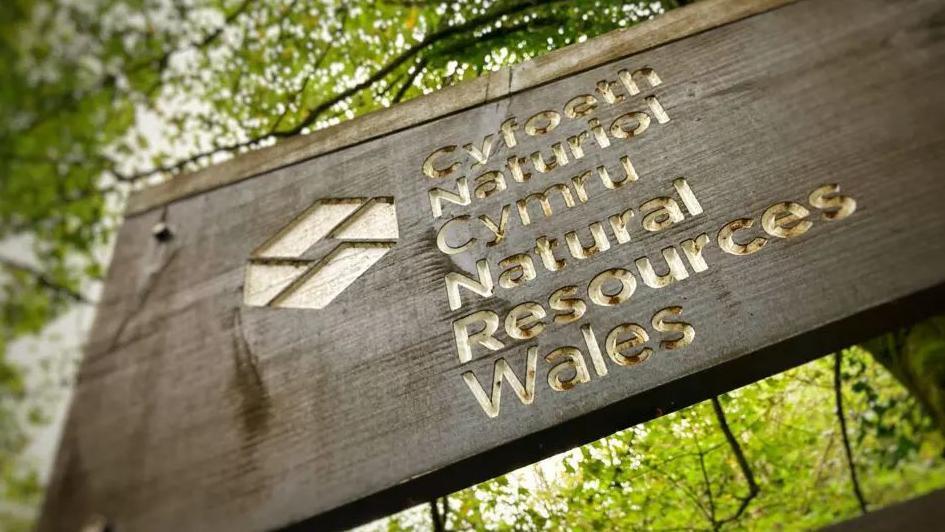Watchdog confirms cuts and closures to save £12m

The move is intended to plug a funding gap in NRW's budget
- Published
Natural Resources Wales (NRW) has confirmed it will no longer run cafes and shops at its visitor centres and will close its library service in a bid to save £12m.
NRW said the changes - which involve removing 233 job posts from its structure - will allow it to focus on its "core responsibilities".
It said 113 of these roles are already vacant, meaning 120 current staff members are affected.
NRW said it will redeploy these workers within the organisation, where possible.
Hundreds protest over future of visitor centre
- Published5 October 2024
Hundreds of watchdog job cuts 'put nature at risk'
- Published23 September 2024
The environmental regulator's board has now approved the restructure plans, following a consultation with trade unions and staff.
It said feedback had led to several proposals being adjusted, including "reducing the number of roles to be removed from the organisational structure".
Plans for changes to NRW's visitor centres in particular had sparked outcry and protests from community groups.
The organisation will no longer run its own cafes and shops at Coed y Brenin in Gwynedd, as well as Bwlch Nant yr Arian and Ynyslas, in Ceredigion.
The sites themselves will remain open for walking and biking, as will play areas, car parking and toilet provision.
NRW said it would "work closely with customers, partners, and stakeholders to transition smoothly... ensuring the timely transfer of information, knowledge, and resources to others where possible".
Further information would be provided at forthcoming public meetings, it added.
It also confirmed the closure of its environmental library, based at its offices in Bangor.
Environment groups and the trade union Unison had also criticised the planned cuts to the organisation, claiming the range of job roles being closed "put Welsh nature at risk".
But NRW's Chairman Sir David Henshaw said the changes being made would "help us maximise our impact where it matters most".
“This process is not only about addressing financial constraints but about putting NRW in the best shape to tackle the most pressing environmental issues," he said.
While some activities would be "adapted or delivered differently", resources would be freed up to allow additional investment in areas such as monitoring and improving water quality.
"We are incredibly grateful for the dedication and resilience our staff have shown throughout this period of change," Sir David added.
"We understand these changes come with a personal cost, and we are committed to supporting our team as we move forward."